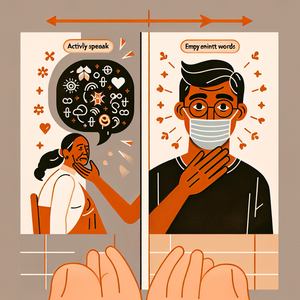Bridging the Gap: Data Science and Social Good

Climate change stands as one of the most significant challenges of our time, threatening ecosystems, economies, and human health. Data science is crucial in understanding and mitigating these threats. For instance, organizations such as the Climate Impact Lab employ advanced statistical models and extensive datasets to predict the economic impacts of climate change. By quantifying the risks associated with rising temperatures and extreme weather events, they empower policymakers to make informed decisions about adaptation and mitigation strategies. Moreover, machine learning algorithms are increasingly used to optimize energy consumption in urban landscapes. Companies like Google have developed AI systems that analyze real-time energy usage patterns, thereby reducing waste and lowering carbon footprints in buildings. Such data-driven approaches not only bolster sustainability efforts but also highlight how data science can lead to significant conservation of resources, ultimately contributing to a healthier planet.
Public Health Initiatives Powered by Data Science
The COVID-19 pandemic underscored the critical role of data science in public health. Data scientists were pivotal in tracking the virus's spread, analyzing transmission patterns, and informing vaccination strategies. The COVID-19 Data Repository by the Center for Systems Science and Engineering at Johns Hopkins University became an essential resource for global health organizations, providing real-time data that shaped responses worldwide. Beyond the pandemic, data science continues to influence public health in various capacities. Organizations like Health Catalyst leverage data analytics to enhance healthcare delivery and outcomes. By scrutinizing patient data and identifying trends, they equip healthcare providers with the evidence needed to make informed decisions, ultimately leading to improved patient care and resource allocation.
Social Justice and Data-Driven Decision Making
Data science also plays a vital role in addressing social justice issues. Initiatives like Data for Black Lives harness the power of data to combat systemic racism and promote equity. By examining data related to policing, education, and healthcare, these organizations advocate for policies that dismantle inequalities and foster inclusivity. Additionally, predictive analytics can be employed to identify communities at risk of social issues, such as homelessness or food insecurity. By proactively addressing these challenges through targeted interventions, data scientists can contribute to the creation of more equitable societies.
Case Studies: Successful Data-Driven Projects
Several exemplary projects illustrate the successful application of data science for social good: 1. **The Global Burden of Disease Study**: This extensive research initiative utilizes data to assess health trends and outcomes on a global scale. By providing insights into disease prevalence and risk factors, it informs public health policies and interventions aimed at improving health outcomes. 2. **The Data Science for Social Good Fellowship**: This program pairs data scientists with social organizations to tackle real-world problems. Past projects have included developing predictive tools for food insecurity and optimizing resource allocation for disaster response. 3. **The Urban Institute's Data Analysis**: This nonprofit organization employs data to analyze social and economic trends in urban areas. Their research has influenced policies related to housing, education, and economic mobility, demonstrating the power of data in shaping public policy.
The intersection of data science and social good presents a powerful opportunity to address some of the most pressing challenges facing our world today. By leveraging their skills and expertise, data scientists can transform raw data into meaningful insights that drive impactful solutions. As we navigate complex societal issues, the importance of data-driven decision-making will only grow. The initiatives highlighted in this article serve as a testament to the potential of data science to create positive change, inspiring future generations of data scientists to use their talents for the greater good. By bridging the gap between data and the communities that need it most, we can ensure that the power of data is harnessed for all, paving the way for a more equitable and sustainable future.
Public Health Data Scientist
Centers for Disease Control and Prevention (CDC), World Health Organization (WHO), Health Catalyst
Core Responsibilities
Analyze healthcare datasets to identify trends in patient outcomes and disease prevalence.
Collaborate with healthcare providers to develop data-driven strategies that improve patient care and resource allocation.
Present findings to stakeholders through clear reports and visualizations to inform policy decisions.
Required Skills
Proficiency in statistical software (e.g., R, Python, SAS) and data visualization tools (e.g., Tableau, Power BI).
Strong understanding of epidemiology and public health principles.
Ability to interpret complex data and communicate findings effectively.
Environmental Data Scientist
The Nature Conservancy, Environmental Protection Agency (EPA), Climate Impact Lab
Core Responsibilities
Utilize large datasets to assess the impacts of climate change on ecosystems and human health.
Develop predictive models to forecast environmental changes and recommend mitigation strategies.
Collaborate with policymakers to inform environmental regulations and conservation efforts.
Required Skills
Expertise in environmental science and statistics, with proficiency in GIS tools and programming languages.
Strong analytical skills to interpret complex environmental datasets.
Experience with machine learning techniques for predictive modeling.
Data Visualization Specialist
Nonprofits focused on social justice, consulting firms, tech companies like Google or Microsoft
Core Responsibilities
Create interactive visualizations and dashboards to communicate complex data insights to diverse audiences.
Collaborate with data analysts and stakeholders to determine the best visualization techniques for their data.
Design and implement data storytelling strategies that effectively convey results and drive action.
Required Skills
Proficiency in data visualization tools (e.g., Tableau, D3.js, Power BI) and graphic design principles.
Strong understanding of data analysis and statistics to ensure accurate representation of data.
Excellent communication skills to present visualizations and explain data-driven insights.
Machine Learning Engineer for Social Impact
Data for Black Lives, social impact startups, research institutions
Core Responsibilities
Design and implement machine learning algorithms to solve social issues, such as predicting food insecurity or optimizing resource distribution.
Work closely with data scientists and social organizations to understand their challenges and develop tailored solutions.
Conduct experiments and analyze model performance to iterate and improve algorithms.
Required Skills
Strong programming skills in languages such as Python or Java, with experience in machine learning libraries (e.g., TensorFlow, Scikit-learn).
Knowledge of data preprocessing, model evaluation, and deployment strategies.
Familiarity with social impact issues and the ability to translate them into technical solutions.
Social Impact Consultant
Consulting firms specializing in social impact, philanthropic organizations, and think tanks
Core Responsibilities
Work with nonprofits and government agencies to assess their data needs and identify opportunities for data-driven decision-making.
Develop strategies that leverage data analytics to improve social programs and initiatives.
Facilitate workshops and training sessions to build data literacy among stakeholders.
Required Skills
Strong background in data analysis and project management.
Excellent communication and interpersonal skills to engage with diverse stakeholders.
Experience in the social sector and an understanding of the challenges faced by non-profit organizations.


